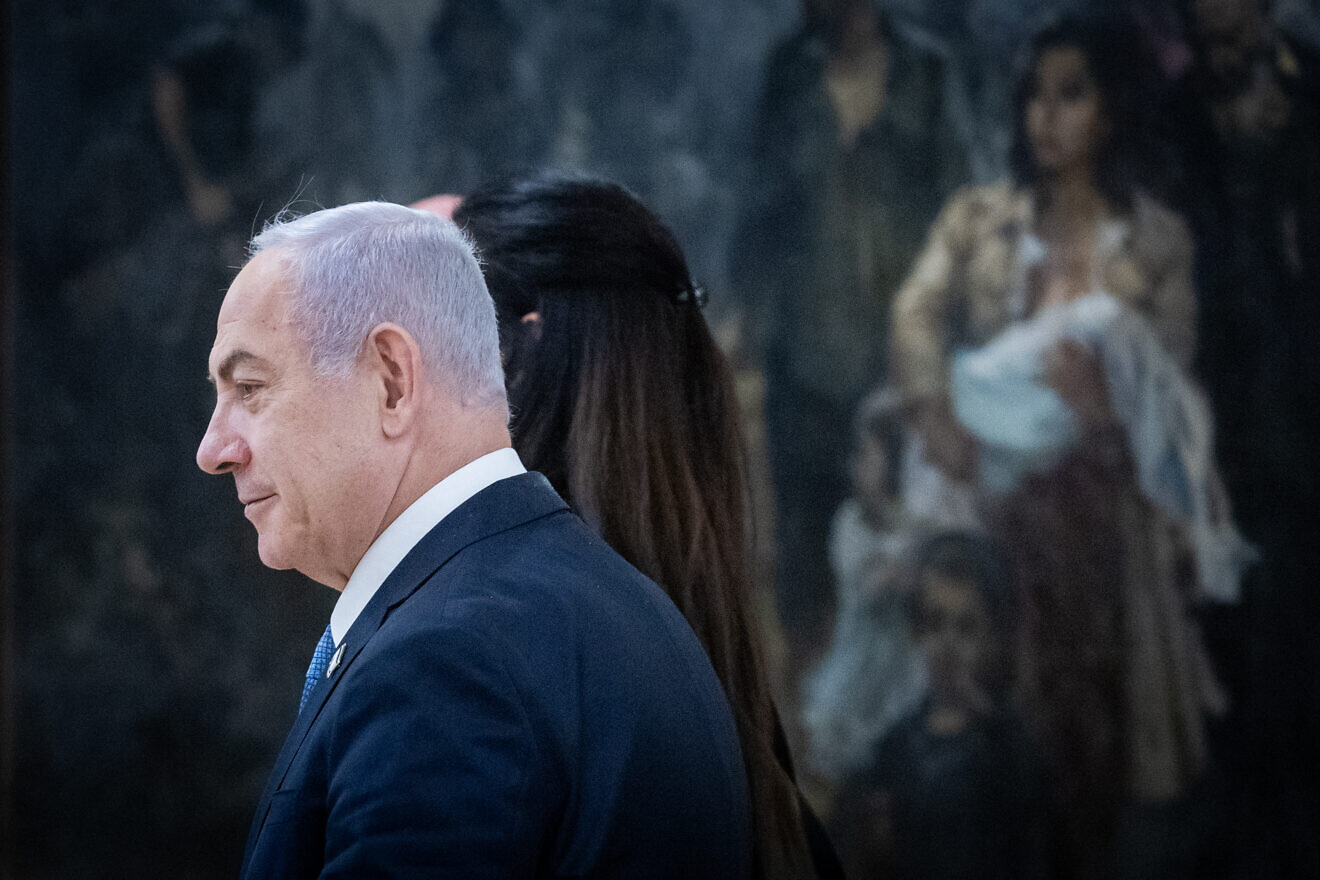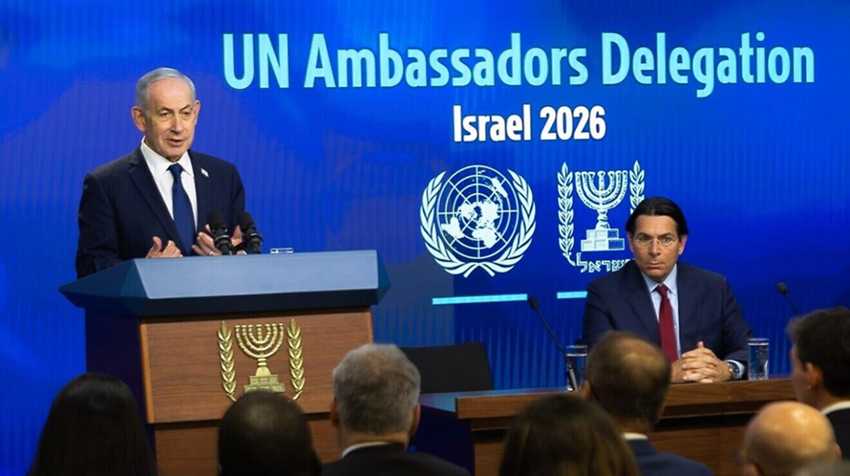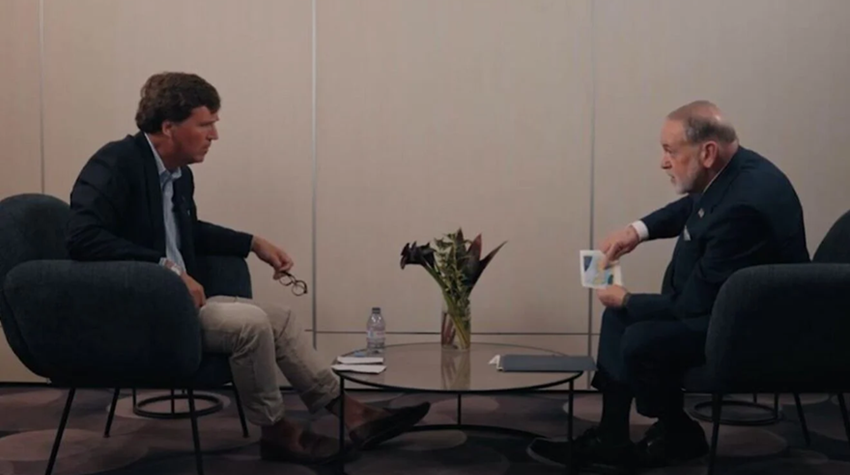Israeli Prime Minister Benjamin Netanyahu in the Israeli parliament, Nov. 13, 2024. Photo by Chaim Goldbergl/Flash90.
By Akiva Van Koningsveld
Israeli Prime Minister Benjamin Netanyahu told lawmakers at the Knesset in Jerusalem on Monday that outgoing U.S. President Joe Biden’s advice on how to handle the wars with Iran and its terrorist proxies across the region was often incorrect, and that Jerusalem had opted to “follow our own view.”
Following Hamas’s Oct. 7, 2023, cross-border massacre from the Gaza Strip, Washington “suggested that we not go in on the ground,” he said during a 40-signature debate, which opposition lawmakers can call once a month and in which the premier is legally obliged to participate.
“It said, ‘It can be handled from the air.’ It sent experts. We decided to follow our view and go in—a ground offensive,” claimed Netanyahu.
The Biden administration had also opposed going into Gaza City and its Hamas-controlled Shifa Hospital, as well as into the terrorist strongholds of Khan Younis and Rafah in the southern Strip, according to the premier.
Regarding Rafah, Biden said that if Jerusalem went in, it would stand alone, said Netanyahu. “He also said he would stop important arms shipments. And so he did. A few days later, [U.S. Secretary of State Antony] Blinken appeared and repeated the same things. I told him in a broad forum: ‘Tony, if we have to, we’ll fight with our fingernails.'”
In a separate closed-door meeting of the Foreign Affairs and Defense Committee meeting on Monday, Netanyahu told legislators that the United States had estimated that 20,000 Palestinians would be killed in Rafah. “That turned out to be a total fiction,” the premier said, per Channel 14.
In September, the Israel Defense Forces told reporters during a visit to southern Gaza that an estimated 2,308 terrorist operatives were killed in Rafah, while more than 13 kilometers (8 miles) of Hamas tunnels were destroyed.
Netanyahu stressed in his public Knesset address on Monday that the United States did come to Jerusalem’s assistance at the start of the war, when Biden and other officials paid wartime visits to the Jewish state.
However, he continued, “We must preserve Israel’s independence. We decided to enter—and we occupied Rafah, the Philadelphi Corridor and the Rafah Crossing.”
“We eliminated the organized [Hamas] battalions,” Netanyahu said. “We destroyed a substantial part of Hamas’s military capabilities. We aren’t done yet, but we have come a long way. But we also have a goal of destroying Hamas’s governmental capacities. This is the next thing,” he continued.
“I requested that the IDF come up with an orderly plan to eradicate the governmental capacities, which is also related to restricting their ability to distribute food, to distribute humanitarian aid,” the premier said.
Netanyahu also criticized the U.S. administration over its demands that the IDF refrain from retaliating against Iran for its unprecedented ballistic missile attacks on the Jewish state.
“Again, we were told by our friends, ‘there is no need to respond,’ ‘take the win,’ ‘be content with victory.’ I said, ‘This is not a victory.’ If they attack you, and, with God’s help, they didn’t kill anyone, if you don’t respond—that’s certainly not a victory. There must be a response. We responded. I won’t go into all the details, but we responded,” he said.
Biden announced in July that he was dropping out of the Nov. 5 election, endorsing Vice President Kamala Harris for the White House. Earlier this month, Republican President-elect Donald Trump won a decisive victory, securing 312 electoral votes to Harris’s 226.
Source: JNS


































